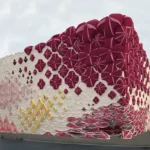Finding the right support on your healing journey can often feel overwhelming, especially for queer and trans individuals navigating a world that may not always be welcoming. Enter Weronika Rogula a trailblazer in trauma-informed therapy based in Toronto, dedicated to offering somatic-based support tailored specifically for the LGBTQ+ community. With compassion at her core, Weronika’s innovative approach fosters a safe space where clients can explore their experiences and begin to heal from past traumas. If you’re seeking understanding, empowerment, and connection within your therapeutic experience, you’re in the right place. Let’s dive into what makes Weronika Rogula practice a beacon of hope for those looking to reclaim their narrative and strengthen their relationships.
Understanding the importance of trauma-informed therapy for queer and trans individuals
Trauma-informed therapy is crucial for queer and trans individuals. Traditional therapeutic approaches may overlook the unique challenges faced by these communities.
Many experience discrimination, stigma, or violence. These experiences can lead to deep emotional scars. A trauma-informed approach recognizes this reality, providing a safe space for healing.
For queer and trans clients, understanding their lived experiences is essential. It fosters trust between therapist and client, allowing them to explore difficult emotions without fear of judgment.
Additionally, trauma-informed therapy emphasizes empowerment. Clients learn to reclaim their narratives and navigate their identities with confidence. This process promotes resilience in the face of adversity.
Incorporating these principles can transform the therapeutic journey into one of growth rather than merely survival. It’s about creating pathways toward genuine healing tailored to individual needs within diverse identities.
The role of somatic-based support in healing from trauma
Somatic-based support plays a crucial role in trauma healing. It focuses on the connection between the body and mind, recognizing that trauma is often stored physically.
When individuals experience distressing events, their bodies may react in ways they don’t fully understand. Tension, aches, or even emotional numbness can manifest over time. By addressing these physical sensations, clients can gain insight into their experiences.
Practices such as breathwork and mindful movement encourage awareness of bodily sensations. This awareness fosters a safe space for processing emotions associated with past traumas.
For queer and trans individuals, traditional talk therapy might not always resonate. Somatic approaches validate lived experiences while promoting self-acceptance and empowerment. Through this method, clients learn to reconnect with their bodies and reclaim their narratives, paving the way for profound healing journeys within supportive environments like those offered by Weronika Rogula.
How Weronika Rogula’s approach differs from traditional therapy methods
Weronika Rogula’s approach stands out by integrating somatic practices into therapy. While traditional methods often focus on talk and cognitive strategies, Weronika emphasizes the body’s role in healing trauma. This can lead to a deeper understanding of emotions.
Instead of solely exploring thoughts and feelings, her sessions encourage clients to connect with their physical sensations. This holistic perspective is especially beneficial for queer and trans individuals who may have experienced unique forms of trauma.
Additionally, Weronika creates a safe space that honors diverse identities. Her practice recognizes the nuances within queer experiences, fostering trust and openness that traditional models sometimes overlook.
By prioritizing individual journeys, she tailors each session to meet specific needs—a stark contrast to one-size-fits-all approaches common in conventional therapy settings. Clients engage with their bodies as part of their emotional process, paving the way for profound self-discovery and healing.
Success stories and testimonials from clients
Clients of Weronika Rogula often share transformative experiences that highlight the effectiveness of trauma-informed therapy. Many express gratitude for finally feeling seen and validated in their journeys.
One client recounted overcoming deep-seated fears about their identity. Through somatic-based support, they learned to reconnect with their body, fostering a sense of safety and empowerment.
Another couple shared how sessions allowed them to communicate openly about past traumas affecting their relationship. They discovered newfound intimacy and trust through this process.
Testimonies reveal a common theme: clients appreciate the personalized approach that respects each individual’s unique story. This tailored method creates a nurturing space where healing can flourish, enabling participants to embrace who they are fully.
Many leave feeling lighter, equipped with tools to navigate life’s challenges while celebrating their identities with pride. These stories underscore the profound impact of this specialized queer therapy in Toronto.
The impact of trauma on relationships and why couples and polycules can benefit from this therapy
Trauma can deeply affect relationships, often creating barriers to intimacy and trust. Individuals carrying past wounds may struggle to communicate their needs or establish emotional connections.
For couples and polycules, this dynamic is even more complex. Each person’s trauma interacts with the others in unique ways, sometimes leading to misunderstandings or conflict. This can cause feelings of isolation within a partnership.
Trauma-informed therapy provides a safe space for healing together. It encourages open dialogue about individual experiences while fostering empathy among partners.
By addressing these underlying issues, couples can learn healthier communication styles and develop stronger bonds. Somatic-based support helps individuals reconnect with their bodies, allowing for deeper emotional awareness during interactions.
Seeking help from someone like Weronika Rogula allows queer and trans partnerships to navigate trauma collectively, promoting resilience and understanding as they grow together.
Conclusion
Trauma can leave lasting effects, especially for queer and trans individuals. This is where trauma-informed therapy becomes crucial. Weronika Rogula offers a unique approach that prioritizes the emotional and physical experiences of clients. By incorporating somatic-based support, her practice helps individuals connect with their bodies in healing ways


